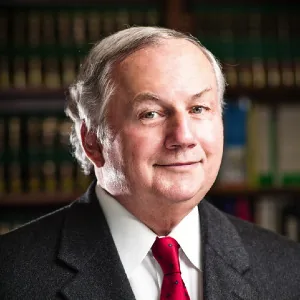Grief After Loss
I’m Ed Smith, a Wrongful Death Lawyer in Sacramento. Coping with losing someone or something dear to you is one of life’s most heart wrenching challenges. Unexpected and overwhelming emotions can leave a person in a profound state of discontent, with their emotional stress affecting their well-being. Difficulty sleeping, disinterest in eating, and depression are not uncommon when grieving the loss of a loved one or other important part of one’s life. Feelings of grief are a natural response to the loss of someone or something important. People often grieve both significant losses, and also more subtle losses. Life is full of changes-some are harder to adjust to than others. Whatever the loss, there is no shame in one’s personal feelings.
Symptoms of Grief
Grief can manifest in both physical and emotional symptoms. Grieving parties often experience feelings of anxiety and worry, frustration and anger, guilt, fatigue, and detachment. These stresses can also cause difficulty sleeping, aches and pains, loss of appetite, headaches, and abnormal behavior. Depending on the individual, some or all of these symptoms may occur, including others that have not been listed. Not everyone will feel the same things, or experience them on the same time frame.
Stages of Grief
Each person grieves differently, and there is no wrong or right way to grieve. Many factors can influence how a person grieves, including their individual personality, life experiences, and the personal significance of the loss. Psychiatrist Elisabeth Kübler-Ross postulated the widely known “Five Stages of Grief” in her book On Death and Dying, identifying a series of emotions commonly experienced by individuals with terminal illness and people dealing with the loss of a loved one.
- Denial: When confronted with a loss, many people initially are unable to process their emotional response. The resulting confusion often times leaves a person with a sense of disbelief. One might believe that there might be a mistake and the bad news inaccurate, manifesting their incomprehension with a false hope that things are as they were and not as they are. Denial can help a person’s mind pace their feelings of grief rather than the tremendous shock of the full impact immediately. Once the denial beings to fade, the grieving person can start to process their emotions and being to heal.
- Anger: The next stage of grieving is often anger. People may think “why did this happen to me?” or become preoccupied with the “unfairness” of the situation. Blaming others and redirecting one’s anger toward nearby targets like family and friends is not an uncommon response to feelings of anger as a person grieves. The feelings of anger will dissipate in time, but it is important to feel these emotions and be present with the feeling. Anger can in many ways help grieving individuals reconnect with the reality of the situation and is a normal and natural part of the healing process.
- Bargaining: Many people experiencing grief will eventually come to a point in their denial and anger when they seek to “bargain.” People might make a plea to their faith, asking God to prevent the catastrophe upon them. “What if?” scenarios might preoccupy the grieving party as they try to rationalize their hopes against the reality of the situation.
- Depression: Losing a loved one or important part of one’s life often leaves a person with a sense of emptiness. This stage of grief often involves feelings of detachment, numbness, and withdrawal from life. Depression can be perhaps the most traumatic stage of grief, full of hopelessness and dark thoughts. As a person transitions through the stages of grief, they will eventually come to terms with their feelings and the situation, the final stage of grief.
- Acceptance: As a person comes to accept the reality of the situation, they are able to return to a sense of normalcy. Accepting a loss is not to say that a person is “ok” with it, but that they accept that it happened. A person who has accepted their loss may still experience many of the previously mentioned negative emotions, but they are no longer controlled by that thinking. One might still have bad days, but the good days out number the bad. Accepting the changes that life brings is the hallmark of growth; the evolution of an individual over the journey of their life.
Treating Grief
Both prescription medication and counseling services are common treatments for individuals experiencing grief. Medications can help people cope with some of the physical and emotional symptoms of grief, including sedatives, antidepressant and/or anti-anxiety medications. Professional counselling is also useful aide to those struggling with grief, enabling affected parties to access support groups with others suffering similarly and providing expert personal guidance to help a person process their emotions.
Similar Blogs by Sacramento Wrongful Death Lawyer, Ed Smith:
- Preserving Life’s Memories With Legacy Therapy
- GRIEF: Death of a Loved One
- Working Through the Grieving Process: Losing a Father
- Coping with Bereavement and Grief
Wrongful Death Lawyer in Sacramento
I’m Ed Smith, a Sacramento Wrongful Death Lawyer. Losing a loved one is never an easy thing, especially when that person is taken unexpectedly. If you have suffered the loss of a family member or loved one and need the assistance of an experienced attorney in pursuing a wrongful death claim, I can help. Please call me at your earliest convenience at (916) 921-6400 or (800) 404-5400 for compassionate, free and friendly advice. I can also be reached online through AutoAccident.com.
I have helped families recover from wrongful death cases and personal injuries since 1982. Read a wide variety of our reviews on: Yelp, Google, and Avvo.
As a member of the prestigious Million Dollar Forum, my work has been recognized for the million-dollar settlements and verdicts I have won on behalf of clients. You can view a selection of previous Verdicts and Settlements of mine on my website.


